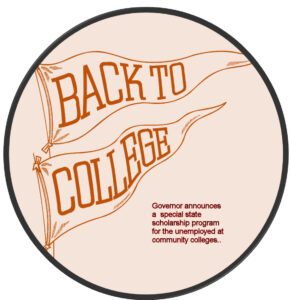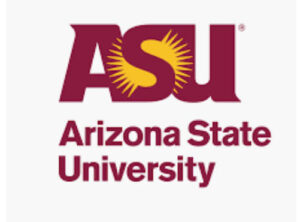Almost $40,000 in scholarships available to veterans as of 2021
 S.E.E.4VETS, a veterans advocacy group based in Scottsdale, has created the S.E.E.4VETS Veteran Legacy Endowment with the Yavapai College Foundation. According to Jane Hersh, the Community College’s Director of Veterans Education and Transition Services, “Our partnership with S.E.E.4VETS has blossomed over the years and their support has grown to nearly $40,000 in scholarships to veterans at Yavapai College as of 2021.”
S.E.E.4VETS, a veterans advocacy group based in Scottsdale, has created the S.E.E.4VETS Veteran Legacy Endowment with the Yavapai College Foundation. According to Jane Hersh, the Community College’s Director of Veterans Education and Transition Services, “Our partnership with S.E.E.4VETS has blossomed over the years and their support has grown to nearly $40,000 in scholarships to veterans at Yavapai College as of 2021.”
S.E.E.4VETS (an acronym for “Support Education and Employment for Vets,”) is an eight-year-old non-profit dedicated to helping veterans complete their education and find success in civilian life. Directed mostly by retired military members, S.E.E.4VETS works through community colleges in the Western United States to find transitioning military members that other programs might miss.
“We were looking for this niche where the veterans community was not being well-served. That’s where we thought we could help.” Lt. Gen (Retired) USAF Vern “Rusty” Findley, S.E.E.4VETS Board Vice Chair, explained. “We looked at the major universities and their [veterans] programs were pretty solid. But we did find some holes at the community college level. That’s where we zeroed in.”
 Yavapai Community College has announced that twelve nursing and radiology students have received Community Healthcare scholarships. The program for students in these areas was established in 2012. Since that time, more than $1 million in scholarships have been awarded to 153 students. This is on average about $6,500 per student.
Yavapai Community College has announced that twelve nursing and radiology students have received Community Healthcare scholarships. The program for students in these areas was established in 2012. Since that time, more than $1 million in scholarships have been awarded to 153 students. This is on average about $6,500 per student.
 Yavapai Community College has announced a new three-year pilot program for students in the Nursing, Nursing intent, Early Childhood and K-12 Education whose childcare costs may have prevented them from attending college. The Community College in cooperation with the Arizona Department of Economic Security will pay up to $725 per child, per month, in childcare expenses for qualified full-time students in these four areas of study.
Yavapai Community College has announced a new three-year pilot program for students in the Nursing, Nursing intent, Early Childhood and K-12 Education whose childcare costs may have prevented them from attending college. The Community College in cooperation with the Arizona Department of Economic Security will pay up to $725 per child, per month, in childcare expenses for qualified full-time students in these four areas of study. On May 13, 2021, Governor Doug Ducey and DES announced Back To Work programs to help individuals transition from unemployment to a new job, and ensure those currently receiving unemployment have support available to help them in this critical step forward. With this new program, Arizona will stop taking the federal government’s supplemental pandemic unemployment benefit effective Saturday, July 10. Arizona will also provide support for unemployed individuals seeking to upskill their careers with adult education programs as well as additional child care opportunities:
On May 13, 2021, Governor Doug Ducey and DES announced Back To Work programs to help individuals transition from unemployment to a new job, and ensure those currently receiving unemployment have support available to help them in this critical step forward. With this new program, Arizona will stop taking the federal government’s supplemental pandemic unemployment benefit effective Saturday, July 10. Arizona will also provide support for unemployed individuals seeking to upskill their careers with adult education programs as well as additional child care opportunities: COMMUNITY COLLEGE NEWS RELEASE: Prescott AZ (April 17, 2021) – Yavapai College has announced that it will be offering students who are registered for credit classes ‘One Class Free’ for the fall 2021 semester.
COMMUNITY COLLEGE NEWS RELEASE: Prescott AZ (April 17, 2021) – Yavapai College has announced that it will be offering students who are registered for credit classes ‘One Class Free’ for the fall 2021 semester.  The Sedona Car Club is providing a $2,500 scholarship to Yavapai Community College through its Foundation for a student interested in pursuing an automotive career. The scholarship is available for students just enrolling in the College or students that are already there.
The Sedona Car Club is providing a $2,500 scholarship to Yavapai Community College through its Foundation for a student interested in pursuing an automotive career. The scholarship is available for students just enrolling in the College or students that are already there. The Yavapai Community College District Governing Board had a far-ranging discussion about student athletic scholarships at its October meeting. The discussion was a part of the overall consideration of the tuition and scholarship proposal brought to it for approval by the Community College Administration.
The Yavapai Community College District Governing Board had a far-ranging discussion about student athletic scholarships at its October meeting. The discussion was a part of the overall consideration of the tuition and scholarship proposal brought to it for approval by the Community College Administration. Covid-19 will cause a loss of from $800,000 to $1 million dollars in revenue from the Yavapai Community College residence halls located on the Prescott Campus. One of the reasons for the loss is that there apparently will not be any athletes occupying the residence facilities in the fall. It is estimated that athletes take up about 60% of the residence hall space.
Covid-19 will cause a loss of from $800,000 to $1 million dollars in revenue from the Yavapai Community College residence halls located on the Prescott Campus. One of the reasons for the loss is that there apparently will not be any athletes occupying the residence facilities in the fall. It is estimated that athletes take up about 60% of the residence hall space. In a story in the May 22 Arizona Republic written by Rachel Leingang, Arizona State University announced that it will not send checks to students affected by the coronavirus pandemic during the spring semester. It has decided to defer its spending of nearly $32 million the federal government gave the school and spend it over the coming year. The money came from the Coronavirus Aid, Relief, and Economic Security Act (CARES).
In a story in the May 22 Arizona Republic written by Rachel Leingang, Arizona State University announced that it will not send checks to students affected by the coronavirus pandemic during the spring semester. It has decided to defer its spending of nearly $32 million the federal government gave the school and spend it over the coming year. The money came from the Coronavirus Aid, Relief, and Economic Security Act (CARES).